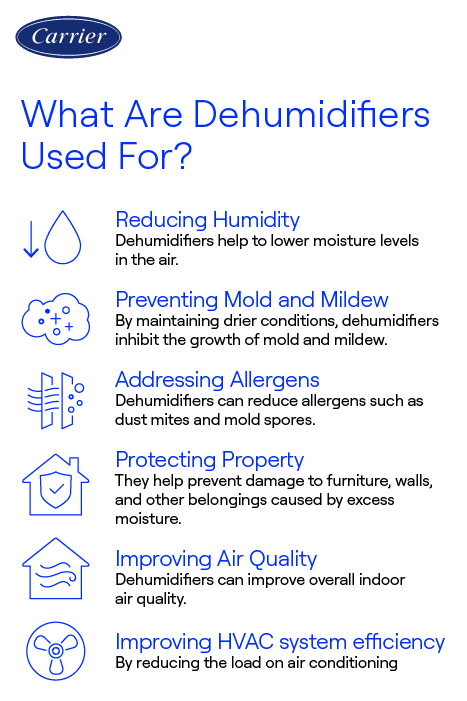What Does A Dehumidifier Do And How Does A Dehumidifier Work?
Dehumidifiers are crucial appliances for maintaining optimal humidity levels in your home. They are specifically designed to remove excess moisture from the air, resulting in a more comfortable and healthier living environment. So, what does a dehumidifier do, and how does a dehumidifier work?

What Is A Dehumidifier?
A dehumidifier is an electrical appliance designed to reduce and maintain the level of humidity in the air, creating a more comfortable and healthier indoor environment. It works by drawing in moist air from the room, which then passes over cold coils within the unit. As the air cools, the moisture condenses into water droplets, which are collected in a tank or directed through a hose to a drain. The now dehumidified air is reheated slightly and released back into the room.

What Does A Dehumidifier Do?
How Does a Dehumidifier Work?
What Are Dehumidifiers Used For?

- Reducing Humidity: Lowering indoor humidity levels to create a more comfortable living environment.
- Preventing Mold and Mildew: Inhibiting the growth of mold and mildew by reducing moisture in the air.
- Addressing Allergens: Reducing allergens such as dust mites and mold spores that thrive in high humidity.
- Protecting Property: Reducing moisture damage to furniture, electronics, and building materials.
- Improving Air Quality: Reducing musty odors and creating healthier indoor air.
- Improving HVAC system efficiency: Dehumidifiers can enhance the efficiency of heating and cooling systems by reducing the burden of excess humidity. Available in various sizes and capacities, dehumidifiers can be portable for specific rooms or integrated into HVAC systems for whole-house humidity control.

How Long Do Dehumidifiers Last?
Connect With Carrier On A Dehumidifier For Your Home

Learn More About Whole-Home Dehumidifiers
- Discover whole-home dehumidifier benefits
- Explore the cost of a whole-home dehumidifier
- Selecting the best dehumidifier for your home
- Discover the best dehumidifier for basement
- Understand the difference between a humidifier vs dehumidifier
- Discover what humidity should be house be at?


